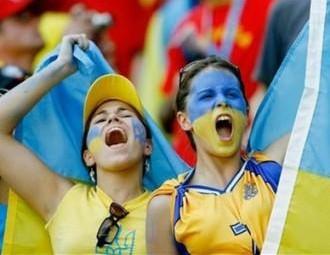Julia Serbina: Ukrainian society has become more consolidated and passed the point of no return

Russian TV-channels are reporting about tens of thousands refugees, who are seeking asylum in Russia; about deserters, who flee to Russia, and about mass protests in Ukraine against mobilization.
What is the actual situation with refugees? Did the Ukrainian society become more consolidated after the start of fighting at the east of the country?
These questions“EuroBelarus” Information Service asked Julia Serbina, the senior researcher of the Regional branch of Ukrainian National Institute for Strategic Studies in Odessa:
- First of all, I would like to be clear about the definitions. From the judicial perspective, we are talking not about refugees, but about temporarily displaced persons. The most accurate data regarding people who left their territory of residence is provided by the Office of the United Nations High Commissioner for Refugees (UNHCR) and by the Office of the United Nations High Commissioner for Human Rights (OHCHR). The number of temporarily displaced persons is constantly changing. According to the information as of 15 July (according to the report of OHCHR), the number of temporarily displaced persons at the Ukrainian territory made up more 86609 people (13381 of whom were displaced from Crimea).
Considerable part of migrants is placed in Kiev and Kiev region, in Lvov, and Odessa regions. If initially it were volunteers who coordinated the process of arrangements for the displaced persons (Ukrainian civil society is now a few steps ahead the state), then starting from the middle of July the Coordinating Center consisting of the central authorities, regional state administrations and volunteers started showing great efficiency. It should also be noted that there are different ways to integrate temporarily displaced persons into new environment: some find a job and don’t plan to come back, some don’t adapt to the different conditions, they blame the state for it and don’t try to adapt. The Office of the United Nations High Commissioner for Refugees launched a program for providing economic independence of the internally displaced persons.
As to the tens and hundreds of thousands refugees, who, according to the Russian media, have left for Russia, we can assume that this figure is largely overestimated. According to the data of the United Nations High Commissioner for Human Rights, only 9600 people sought asylum in Russia. It is hard to draw conclusions about the process of integration into the Russian society for these people.
Certainly, there are antiwar sentiments in the Ukrainian society, and their growth has coincided with the third wave of partial mobilization. At the same time, we should understand the real nature of these sentiments: they have to do not only with the need to stop hostilities under any conditions, but more with the need to stop aggression by Russia. Ukrainian state is suffering losses both among soldiers and among civilians (according to the data of the National Security and Defense Council of Ukraine, since the start of the anti-terror operation at the east of Ukraine 363 soldiers did and 1434 were injured). The report published by the Office of the United Nations High Commissioner for Human Rights marks that since the start of the anti-terror operation before July 26 1129 people died and 3442 were injured. But let me note that the dates of antiwar demonstrations in the native towns of the killed soldiers coincided. Besides, during those days the apartments of the Lvov’s Mayor were shot from the grenade launcher, and the Mayor of Kremenchug was killed. Even if not coordinated, these events match. Also, the call for cease of the anti-terror operation at the east of the country is mostly published in the newspapers loyal to the organization “Ukrainian choice”, which has a pro-Russian leader who also represented Donetsk and Lugansk People’s Republics during the consultations in June, which ended in signing Berlin agreements in the beginning of July.
After the start of hostilities Ukrainian society has not only become more consolidated; it has passed the point of no return. Despite the fact that hostilities are local, they keep all the country in tension, as soldiers from all regions are involved in the anti-terror operation. Besides, the scale and activism of volunteers’ work witness that the Ukrainian society (or at least its most active part) has moved to a principally new evaluative level.
-
03.01
-
07.10
-
22.09
-
17.08
-
12.08
-
30.09








































